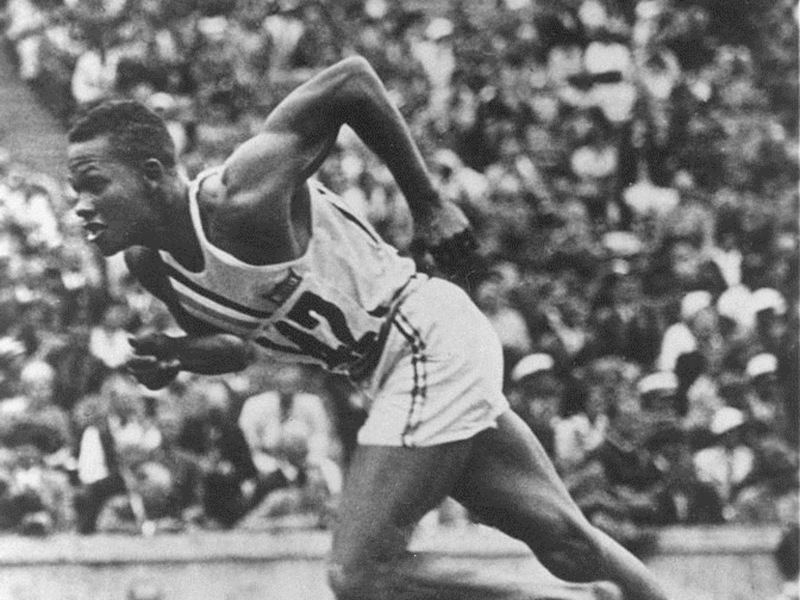Until recently, it was turning out to be a pretty good Black History Month.
President Barack Obama was sworn in for his second term.
When Pope Benedict XVI made a bombshell announcement early this week that he planned to step down, speculation immediately centered on Cardinal Peter Turkson of Ghana, who may become the first black pope in modern history.
My friend and former Milwaukee Journal reporter Kevin Merida was named the first African-American managing editor at the Washington Post.
Too bad that fool known as Lil Wayne had to spoil it by besmirching the name of one of the most significant victims of the civil rights movement and demonstrating just how ignorant some contemporary African-American artists are when it comes to understanding black history.
Lil Wayne is a best-selling Grammy award-winning rap artist who has appeared in Milwaukee frequently over the past few years. He's part of a group of rappers known as much for run-ins with the law as for their music. Like many others, Lil Wayne has managed to achieve cross-over appeal over the years through sensational statements and shrewd marketing.
Born Dwayne Michael Carter, Lil Wayne found himself on the hot seat this week after a leaked recording of his next release reached the Internet, a cover version of another rapper's song called "Karate Chop."
The lyrics in the Lil Wayne version contained pornographic sexual references that evoked the 1955 beating death of Emmett Till, a 14-year-old Chicago boy who was tortured and shot in Mississippi for allegedly whistling at a white woman.
The lyrics, much too vile for a mainstream publication, were so offensive that many hip-hop fans reacted with anger and disgust. When news of the song reached the surviving Till family members, they contacted the Rev. Jesse Jackson to contact the rapper's management to have the song removed from the Internet.
"Out of respect for the legacy of Emmett Till and his family ... we are going through great efforts to take down the unauthorized (remix)," was the response from Epic Records after the negative publicity reached its peak.
The record company said plans to release an official version without the offending Till lyrics would proceed.
In case you're wondering, so far Lil Wayne has had no comment.
I'm no fan of most rap music that contains denigrating lyrics or extreme profanity; I'm more of a "Quiet Storm" R&B aficionado who still relies on artist like Luther Vandross, Sade and Maxwell for my listening pleasure. I've attended rap concerts at Summerfest and other places and usually came away unimpressed by the shouting and the gyrations of the "artists" yelling into microphones.
I also recognize the fact that there are some very socially conscious rap artists out there who have taken up the mantle of veteran rappers like Public Enemy with lyrics that actually make intelligent statements. One such rapper is Common, who was drawn into a political controversy last year over his rap lyrics about George W. Bush.
The freedom of expression for rappers is as important as for any other artist, including the Bruce Springsteens and Bob Dylans of the world. But making up a nasty rhyme equating sex with the brutal death of Emmett Till has nothing to do with art at all in my view.
Many of my friends on social media agreed.
They pointed out Lil Wayne has a history of making controversial statements that seem designed to get maximum coverage in the media. Much of it involves violence and misogyny; he also started a firestorm with remarks about how he favored light-skinned black women over darker ones, a surefire way to get on the bad side of an important demographic for his album sales.
"He is just too disrespectful!" said one Facebook friend. "He needs to be taken to task for his words!"
Another comment on social media lumped Lil Wayne in with other black hip-hop artists who seemed to lack knowledge or respect about black history in general.
"That's why they use the N-word so much because they don't really get it!" said another commenter.
An interesting part of the controversy was revealed when someone on my social network pointed out Epic Records has a black executive in charge. L.A. Reid is chairman and CEO; he might not own the company the way Berry Gordy owned Motown during its heyday, but he's still a major official.
If the top black guy in charge doesn't recognize how offensive Lil Wayne's lyrics about a revered black historical figure whose death was a seminal moment for the civil rights movement would appear to some consumers, then where is the accountability supposed to come from?
It's a teaching moment for everybody to have the Till's name once again in front of a national audience, albeit in such a disgraceful manner.
Many young Americans probably didn't know much about Till or how his death helped fuel a movement for equality that allowed a person like Lil Wayne to become rich and famous.
Now that I know the kind of obscenity he's capable of creating with his words, Lil Wayne is off my playlist for good. Hopefully, large venues like the Marcus Amphitheater at Summerfest or any other big city concert halls will decide to send the guy a message by curtailing his opportunity to spew his particular brand of venom to thousands of people at a time.
(OK I realize that probably won't happen but I can dream, right?)
For many African-Americans, February is a time for reflection about a past that includes both tragedy and triumph.
Let's hope Lil Wayne learned a Black History Month lesson that he won't ever forget.
Eugene Kane is veteran Milwaukee journalist and nationally award winning columnist.
Kane writes about a variety of important issues in Milwaukee and society that impact residents of all backgrounds.







